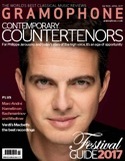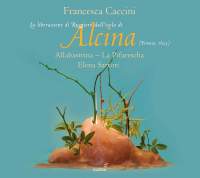Texte paru dans: / Appeared in: |
|
|
Outil de traduction (Très approximatif) |
|
|
Reviewer:
Iain Fenlon
At the dramatic heart of the work lie two strophic arias. The first, performed by the Siren who represents the power of song, is powerfully rendered with dazzling vocal agility by Francesca Lombardi Mazzulli, who convincingly negotiates the virtuoso passagework and surprising harmonic shifts of the accompaniment. Shortly afterwards comes Alcina’s complaint at being abandoned by Ruggiero, an extended exercise in the fashion for laments inaugurated by Monteverdi’s Arianna. Elena Biscuola’s superbly controlled and dramatically paced performance successfully exploits every textual nuance, in a finely shaded depiction of Alcina’s shifting emotional states. But perhaps the most remarkable music of all is reserved for the chorus of Alcina’s discarded lovers, transformed into enchanted plants, who plead with Ruggiero not to leave. In this magical self-contained episode the choral delivery is underpinned by changing instrumental groups whose timbres lighten as the mood brightens. There is much else to enjoy on this engaging recording, from Gabriella Martellacci’s effective reading of Melissa to the stylish playing of the instrumentalists, in what is surely the most successful account of La liberazione to date. Strictly speaking the work is not an opera but a sung entertainment which should finish with staged dances, though Caccini’s score, also published in 1625, does not include them. Elena Sartori, who directs her own transcription from the keyboard with sensitivity and imagination, inserts two contemporary balletti into the final scene to make good the omission. |
|




